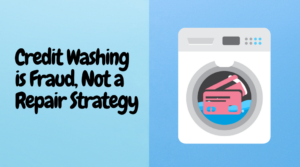It’s a good practice to check your credit at least on a monthly basis.
A good credit history can determine where you live, whether you have access to financial products such as loans or credit cards and even car insurance rates.
Equally important is early detection of fraud or identity theft.
The Consumer Financial Protection Bureau (CFPB) suggests checking your credit reports at least once a year. But is that sufficient?
Here are 4 reasons to check your credit reports at least on a monthly basis:
1. Early Detection of Fraud or Identity Theft
The most important reason to pull your credit reports is to catch any signs of fraudulent activity quickly and identity theft. By reviewing your credit reports monthly, you can spot unauthorized accounts, inquiries, or changes in personal information, allowing you to act promptly and minimize the damage. Services like LifeLock can assist consumers in monitoring but it’s always best to be hands-on too.
Data breaches are increasing, not slowing down.
It’s not your imagination that practically on a daily basis the public is informed of a new data breach. What’s worse, we often find out months after the data breach occurred, like the massive AT&T data breach affecting both current and former customers.
Recently, the National Public Data announced it suffered a massive data breach involving Social Security numbers and other private information of millions of Americans from April 2024 to Summer 2024.
The irony is rich here. The company (National Public Data) that aggregates data to provide background checks can’t protect your information. National Public Data’s breach highlights the inherent risks and vulnerabilities associated with centralizing vast amounts of personal data, even when those organizations are supposed to be experts in safeguarding such information.
Catch any signs of fraudulent activity quickly.
By reviewing your credit reports monthly, you can spot unauthorized accounts, inquiries, or changes in personal information, allowing you to act promptly and minimize the damage.
2. Spotting Errors and Inaccuracies
Even with the best intentions, mistakes can happen. The major credit bureaus (Equifax, Experian, and TransUnion) manage a vast amount of consumer information. Estimates suggest each bureau holds over 200 million individual credit files, with more than 1 billion pieces of data updated each month.
Your credit reports might contain errors in payment history, account balances, or personal details. It’s fairly simple to understand your credit reports. Monthly checks of your credit allows you to identify and dispute these inaccuracies, potentially improving your credit score.
3. Monitor Your Credit Score’s Progress
If you’re actively working to improve your credit score, checking it monthly helps track your progress. You’ll see how your positive financial habits, such as paying bills on time and reducing debt, are impacting your score.
Credit scores can change daily.
If you are under the impression credit scores change infrequently you are wrong. Credit scores are dynamic, not static which basically means scores are calculated based upon the information existing as of that time.
As creditors report on-time payments, balances, missed payments, highest credit used and lots of other information, your scores can change with each new piece of information.
4. Keeping an Eye on Account Activity
Regularly reviewing your credit report lets you monitor the activity on your existing accounts. You can ensure that payments are being reported correctly and identify any potential issues, such as a late payment that might negatively impact your score.
Knowing what affects your credit score can help you change it.
While it is public knowledge the two major contributing factors to your credit score are: (1) Payment History at 35% and (2) Amount Owed is 30%, it is far more valuable to see how it actually works by monitoring your credit score.
If consumers could see how a missed payment causes an immediate score reduction or paying off an account causes an immediate increase, perhaps better credit habits would be developed.
Your creditors review your credit monthly, why shouldn’t you?
Have you ever viewed your credit report and wondered what an account review meant and why your creditor or creditors are checking your credit every month?
Those of you with an American Express card may know exactly what I am talking about. American Express account holders are subjected to monthly “account reviews” where your credit is pulled every month.
The inquiry is a soft one and does not adversely affect your credit score, the account review may actually result in an adverse action being taken.
Let’s say American Express discovers you have opened several new accounts, you were late with other account obligations or you are maxing out other credit cards, they will use that information to make a decision to lower the limit on your credit account with them or possibly even close your account.
Free access to credit reports
You can access your credit reports for free once every week from each of the three major credit bureaus (Equifax, Experian, and TransUnion) through AnnualCreditReport.com. These free reports do not include credit scores.
If you wish to monitor your FICO scores, myFICO.com offers several options, for a fee, to keep tabs on your credit scores. These will be the scores used b y90% of top lenders.


















